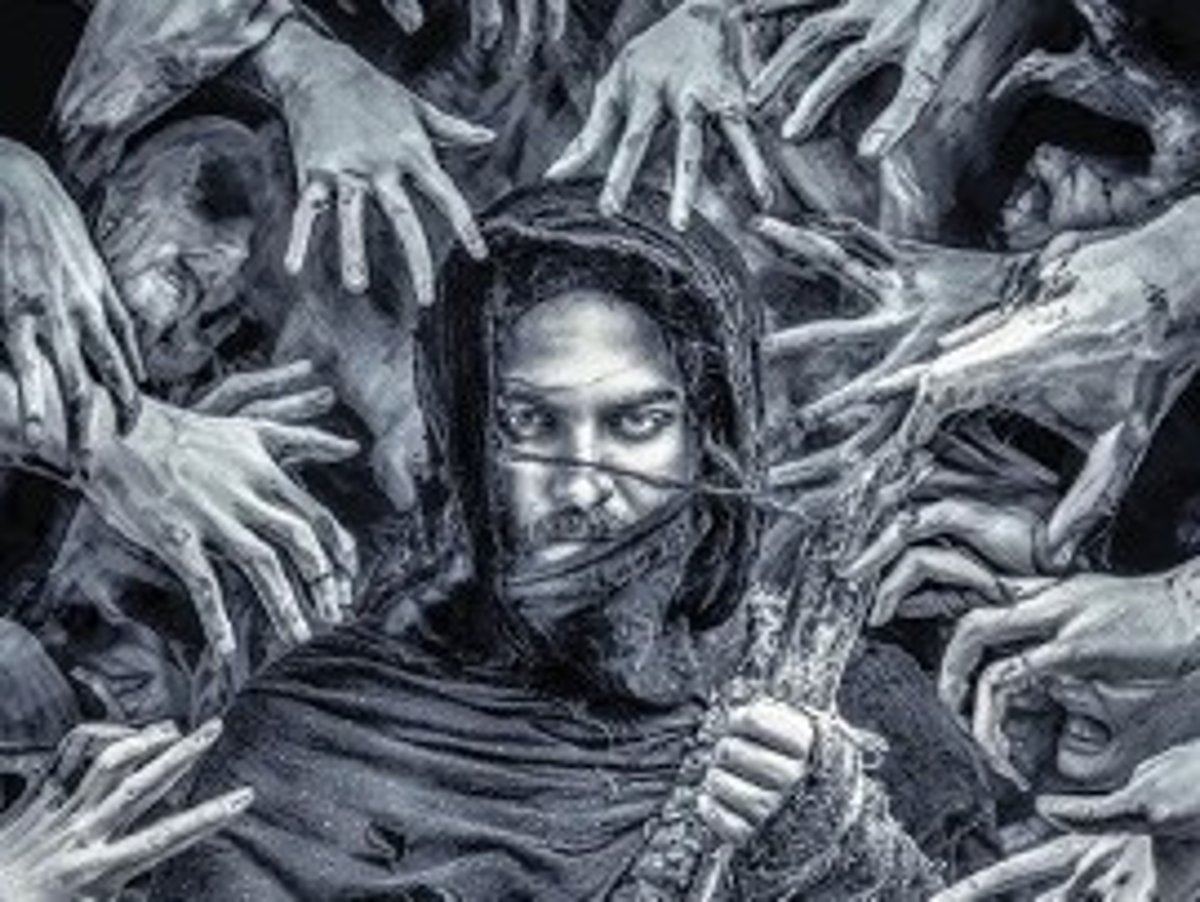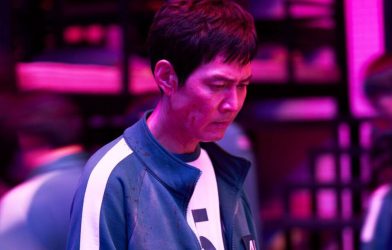
While a popular adage always suggests that the journey is more important than the destination, Gaami begs to differ. While watching the film, it continuously reminds you that the destination matters more. A young girl is on the run from a lifetime of sexual slavery. A teen boy is forcing a jailbreak, Shawshank Redemption-style. A young man is ready to risk life and death for a cluster of luminescent, medicinal mushrooms. In the final stretches of the story, the protagonist realises that the key towards moving ahead does actually involve gazing backwards.
The journey is as external as it is internal. The journey, maybe, does matter more than the destination. But the realisation is too little, too late. The makers of Gaami would have probably wanted you to believe that making peace with one’s past is the key to acquiring peace in the future, but for the most part the film succeeds at portraying its overarching external journey while falling short of bringing its characters’ internal journeys to fruition. To borrow a traveller’s analogy, Gaami goes three steps ahead, while taking two steps backwards. The result is a film that fits the parameters of decent and competent, but falls short of greatness.
For the most part, Gaami plays out like a hyperlink film, living up to its ‘cinema-for-the-sake-of-cinema’ creds from the word go. We are introduced to three different worlds through the eyes of Uma (Harika Pedada), CT-333 (Mohammad Samad) and Shankar (Vishwak Sen). Shankar is a cancelled aghora, thrown out of his ashram for bringing bad luck to its residents with his illness. He cannot touch anyone without getting paralysed. He goes to Prayagraj, where an accomplice of his former caretaker, informs him that the cure to his illness lies in mushrooms that only bloom once in 36 years.
Uma is the daughter of Durga, a devadasi (MG Abhinaya). Estranged from her mother for all her life, she finally gets to meet her mother after the latter has been relieved of her position at the temple. Their hard-earned reunion is shortlived, as the villagers expect Uma to take Durga’s place for the sake of placating people’s superstitions in the name of larger good. CT-333 is a lab rat straight out of a science fiction novel. Living in a spurious facility on the India-China border, his day-to-day life involves electrocution.
An element of loneliness binds all three characters. Director Vidyadhar Kagita uses the lives of Uma, Shankar and CT-333 to fashion three visually rich worlds. Uma, who lives in a place simply titled ‘somewhere in South India’, inhabits a world of earthy, bright colours. CT-333’s lab takes its cues from brutalist architecture leaning towards dystopia. Shankar moves from darkness to less darkness, as blacks give way to greys, whites and blues, reflecting his mental state along the way.
Through the film, we see Shankar travel upwards, while CT-333 is burrowing his way deeper into the bottom. Uma, in comparison, is more Earth-bound in her escape. Needless to say, the journeys of Gaami play out like the three tiers of swargam, bhoolokam and pataalam (heaven, earth and netherworld), providing both spatial and metaphorical renditions to age-old lore.
Format wise too, the stories get equal footing, playing episodically in parallel. While Uma and Shankar have a maternal presence in common (Uma’s mother played by Abhinaya and Shankar’s fellow traveller played by Chandini Chowdary), Shankar and CT-333 have male acquaintances who come to their rescue. While the film plays with tradition on one hand, be it in the depiction of aghoras or the abhorrent devadasi system, there is also a representation of science in its more malevolent avatar, playing god.
In an attempt to link these contrasting schools of thought in Gaami, we see a more scientific reinterpretation of both ardhanareeshwara and neelakanta myths from the Shaivate canon. There is a lot in the film, especially in the initial stretches, that I wish was not overly dialogic or exposition-centric. But a few touches like these balance the more amateurish misgivings out.
Vidyadhar Kagita, alongside his producer Karthik Sabareesh, go all out with worldbuilding in Gaami. The stretches shot in the Himalayas are particularly awe-inspiring. It also feels like a conscious choice to not reveal the time period the film is set in, though the box cameras used by a scientist in a throwaway scene give a clue. Despite its indie origins (it was crowdfunded and shot over a period of five years), Gaami is never too abstract. On the contrary, the film is tightly paced, almost like a thriller, which makes the film more mainstream in its tonality, if not anything else.
Gaami gets its story treatment right, with respect to how the conflicts escalate progressively. Every time we believe Uma or Shankar or CT-333 have escaped trouble, they just find themselves into more trouble. Rogue scientists, harsh weather conditions, regressive villagers, physical limitations and even a mountain lion come in the way of our protagonists and how!
As much as the film lives up to its title, which refers to a sojourner, whatever limitations Gaami has arise from the expectations built by its strengths. Shankar’s condition, the social evils that ruin Uma’s mother Durga’s life, the deeper ethical and political implications of CT-333’s lab could have been, to name a few, could have been explored in depth. They seem to have been shortchanged in the favour of the pursuit-driven pacing the film opts to devote itself to. And for reasons that eventually become clear to the audience towards the end, the three characters feel the same.
And while that does not seem like an issue on paper, three characters being driven by a purpose so uniformly and congruently shaped can actually diminish their cumulative impact, not compound them. 1+1+1 does not become three here, 1 + 1 + 1 just becomes one. Shortcomings notwithstanding, Gaami is a solid beginning, for those who dream to stride the path less taken. Three steps forward and two steps backward is still one step forward.
Gaami
Cast: Vishwak Sen, Chandini Chowdary, MG Abhinaya, Harika Pedada, Mohammad Samad
Director: Vidyadhar Kagita
Rating: 3/5









